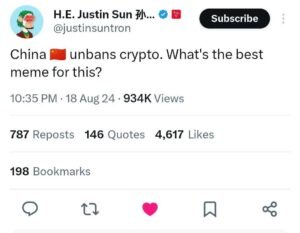One Million Dollars in Privacy: Vitalik Buterin

Just a few days ago, Ethereum co-founder Vitalik Buterin set tongues wagging by donating $1 million in Ether (ETH) to privacy protocol Railgun. The move reflects Buterin’s continued commitment to improving privacy in the blockchain space. Since the beginning of last year, we have seen a number of privacy-focused solutions being developed on Ethereum; one such project is Railgun .
A protocol which uses Secure Multi-Party computation & zero-knowledge proofs to improve transactional privacy by preserving sender-receiver anonymity. This helps solve a key problem of blockchain technology: transparency. With these cryptographic techniques, one can verify transactions without revealing transaction details. By speeding the discussion on privacy in decentralized systems, Buterin has caused real consequences but also fevered speculation about de-anonymity targeting regulatory misuse.
Covering half a millennial sum, his substantial transfer heralded the trend of privacy tools corresponding with current blockchain developments and developers to excelerate their commitment ensuring both transparency and efficacy for all users.
Strategic Expansion Onto the Aptos Network For Tether (USDT)
Contemplatively enough, the firm Tether has publicized that it would launch its USDT stablecoin on the Aptos network so that they can assert and protect their crown in quickening Unstable coin market. Tether chose Aptos-a layer-1 blockchain that is able to achieve some of the best-in-class speed, scalability and efficiency, as its platform for serving users even better.
The launch of USDT on Aptos focuses on bringing easier, cheaper stablecoin operations for users in regions with a large population of people who are unbanked or underbanked. This is in a bid to diversify its blockchain network presence as part of the expansion, with a view for USDT being adopted by various networks and increasing availability, whichever is more successful. This move to Aptos is expected to further strengthen Tether as market demand for stablecoins shows no sign of stopping, particularly in the thriving decentralized finance (DeFi) and remittance markets where rapid, low-cost transaction settlement is vital.
Will China Rescind Its Crypto Ban in 2024?
Information about China might lift the ban on digital currencies after many years as slowly gains traction, sparked by a Tweet from Tron founder Justin Sun. The price of TRX jumped after Sun suggested in a tweet that China might be changing its position on digital assets by 2024, news which was received with excitement and skepticism from some corners. While China’s government has enforced a blanket ban on crypto trading and mining for years, fresh regulatory changes in Hong Kong suggest that the nation may be warming to the industry.

Although Hong Kong’s decision may not directly influence Beijing, Chinese leadership could be paying attention to how the territory handles its crypto business – and that might shake up global currency markets. The relaxation of the crypto ban by China will lead to an influx in adoption and investment, rebuilding up a new galaxy. Of course, without any confirmation, it’s all speculation at this point and little more than a possible bombshell waiting to be dropped.
Cryptocurrency: The New Frontier of Political Betting
With the 2024 race for U.S. president already getting under way, to say nothing of fevered speculation over whether Donald Trump will contest a rematch with incumbent Joe Biden in November next year, it is little more than light relief that politics and crypto markets [in particular via prediction markets] intersect so much now as competitors row resentfully past spectators, turning their cameras away once again from CTV journos caught snoozing on camera. Polymarket and similar platforms are tapping into this combination of decentralized finance (DeFi) with other layers, providing a way for users to wager on political events using cryptocurrencies.
Meanwhile, online trading platforms have also witnessed a rise in business, with brokers offering wagers on the likes of Donald Trump and Kamala Harris. However, this new frontier for political betting is a sign of two things: the ever-expanding use cases bridged by blockchain technology and also poses certain ethical concerns regarding the monetization of events in politics. However, the collision of politics and crypto, even with all its controversy, epitomizes yet another way digital assets are breaking free from their traditional market confinement to seep into governance and public affairs.












